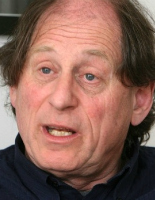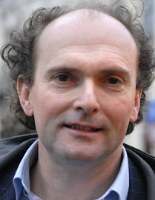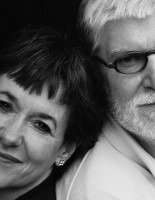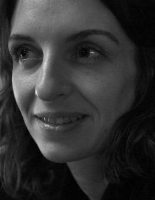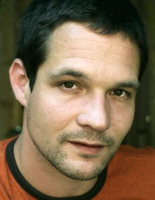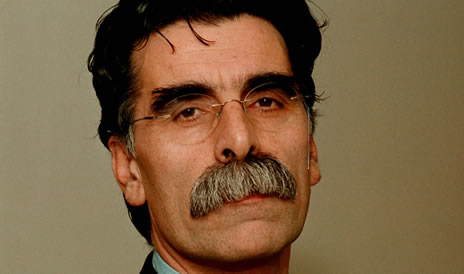
Kader Abdolah
- Café Amsterdam I: 'Holland for beginners'
Date: Thu 1 September Time: 7:00 pm Venue: le Café, UCCA - Zhang Xiaohong interviews A Lai and Kader Abdolah
Date: Sat 3 September Time: 10.00 am Venue: BIBF
Life and work
Kader Abdolah (b. 1954, Iran) studied physics in Teheran and was active in the student resistance. He published two novels about life under the Khomeini regime before fleeing his homeland in 1985. Three years later he came to the Netherlands. He quickly mastered the Dutch language and started writing in it. He made his debut with De adelaars (‘Eagles’, 1993), a collection of short stories which earned him the Golden Dog-Ear Award for the best-sold debut of the year. He has since published the short-story collection De meisjes en de partizanen (‘The Girls and the Partisans’, 1995) and the novels De reis van de lege flessen (‘The Journey of the Empty Bottles’, 1997), Spijkerschrift (‘Cuneiform’, 2000), which was awarded the E. du Perron Prize, and Het huis van de moskee (‘The House of the Mosque’, 2006). In 2008 he published De boodschapper (‘The Messenger’), about the prophet Mohammed, and an alternative translation of the Koran underlining a more moderate and ‘human’ Islam.
Spijkerschrift
‘Spijkerschrift’ refers to the indecipherable script in which deaf, dumb and blind Aga Abkar has recorded his life in Iran, struggling to find a language of his own in a country ruled by a series of different regimes. When Ismael flees to the Netherlands years later, he takes his father’s manuscript with him. There he attempts to decipher it and translate it into Dutch, filling in any passages he cannot understand with his own stories about the country of his birth. He paints a portrait of Iran in the language of his new country, making Dutch his true fatherland, since for an exile the language in which he thinks or writes is his true refuge. This deeply fascinating theme is explored magnificently in Abdolah’s precise, sober yet ecocative prose. This is a book of enormous social and literary significance.
Translation in Chinese
- Abdolah, Kader. [Tianshu. Wo fuqin de biji ben] Chinese / translated from English by Yuan PAN. Guangzhou: Flower City Publishing House, 2010. ISBN:9787536060432.
